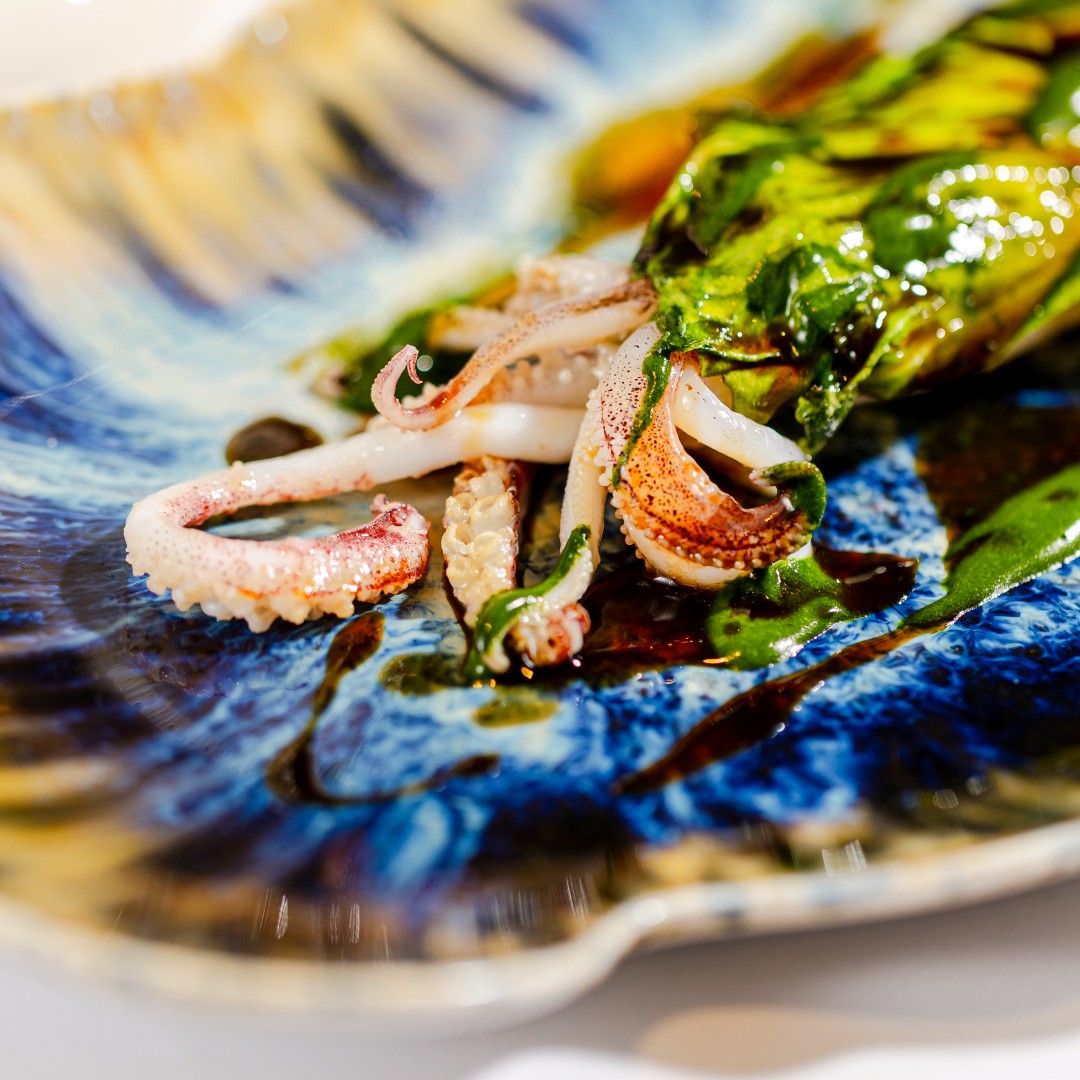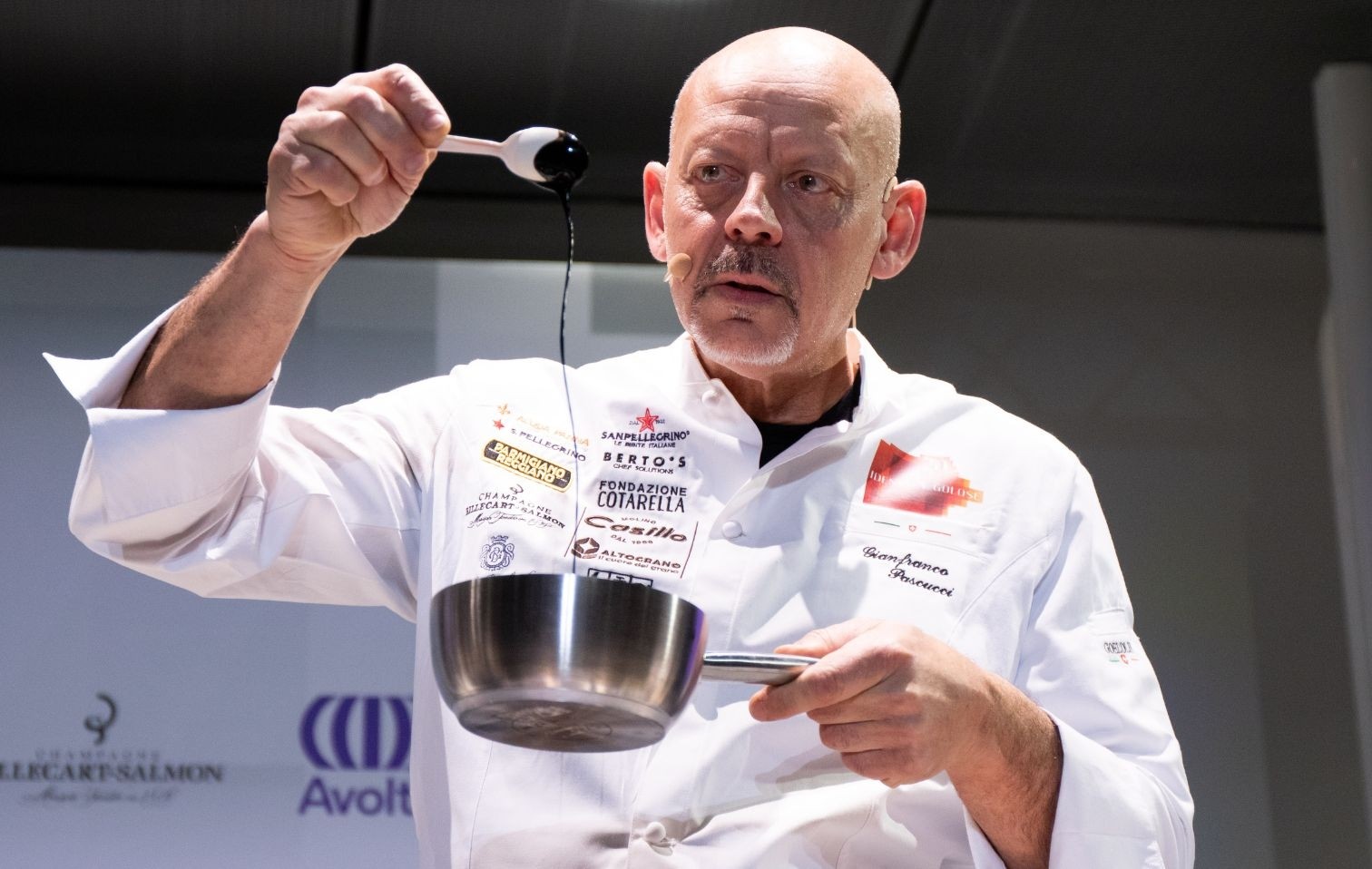In the interview by our editor Pietro Pitzalis, Gianfranco Pascucci recounts the genesis of his squid ferment, similar to a balsamic vinegar in thickness and evolutionary potential.
Cover photo: @Brambilla-Serrani
Starting with a reflection on pasta-the squid spaghetti- the great chef at Pascucci al Porticciolo imagined being able to reuse the shellfish's surplus to create a new flavor enhancer. Thus was born squid vinegar, composed mainly of skins and hard parts that are first converted into broth, then treated with a fermented paste of myrtle berries and yeast. The result? An acetic sauce in the making, highlighting the incredible transformation of the fish ingredient. But let's start at the beginning by going over our interview with Pascucci at the Identità Golose 2025 Congress.
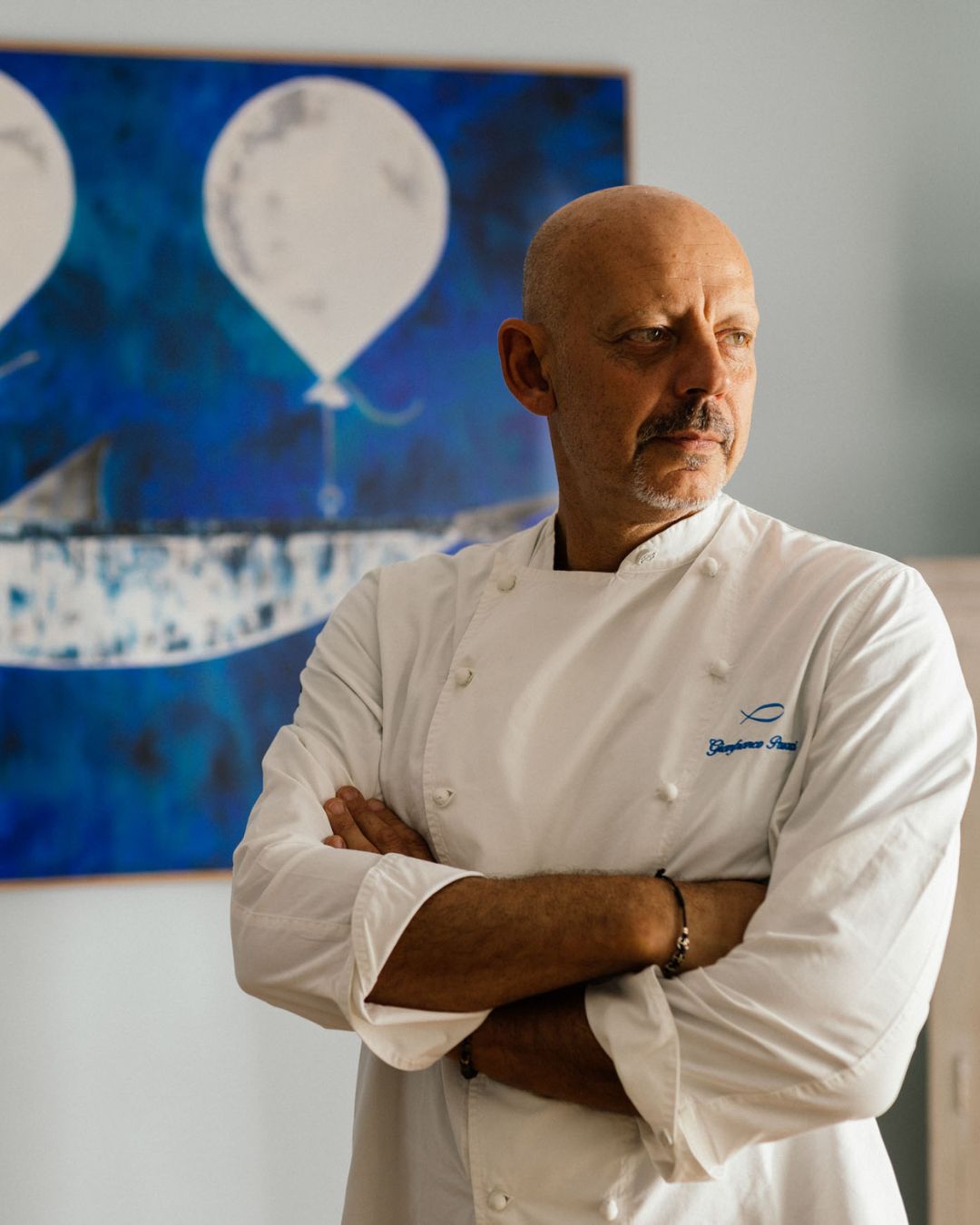
Gianfranco, your rise over the years is emblematic: you started from a more “classic” style and then evolved it into a haute cuisine concept, always with great research and experimentation. Where are you at now? How do you feel at this specific moment?
Today I can say that I feel really good, in the sense that the most important thing is to maintain a healthy desire to move forward, a curiosity and constant attention to everything around us. Given the premises, this is a very positive moment for me and my team. We have opened a new restaurant, fulfilling a dream of years: opening Mare Bistrot, a creative space that is increasingly becoming a laboratory of intent. We are talking about a young format, where both our daughter Guendalina and my previous sous chef Andrea Rivetti find their place ; a place, moreover, that brings together people who are very good at cooking and able to propose a “fun” formula.
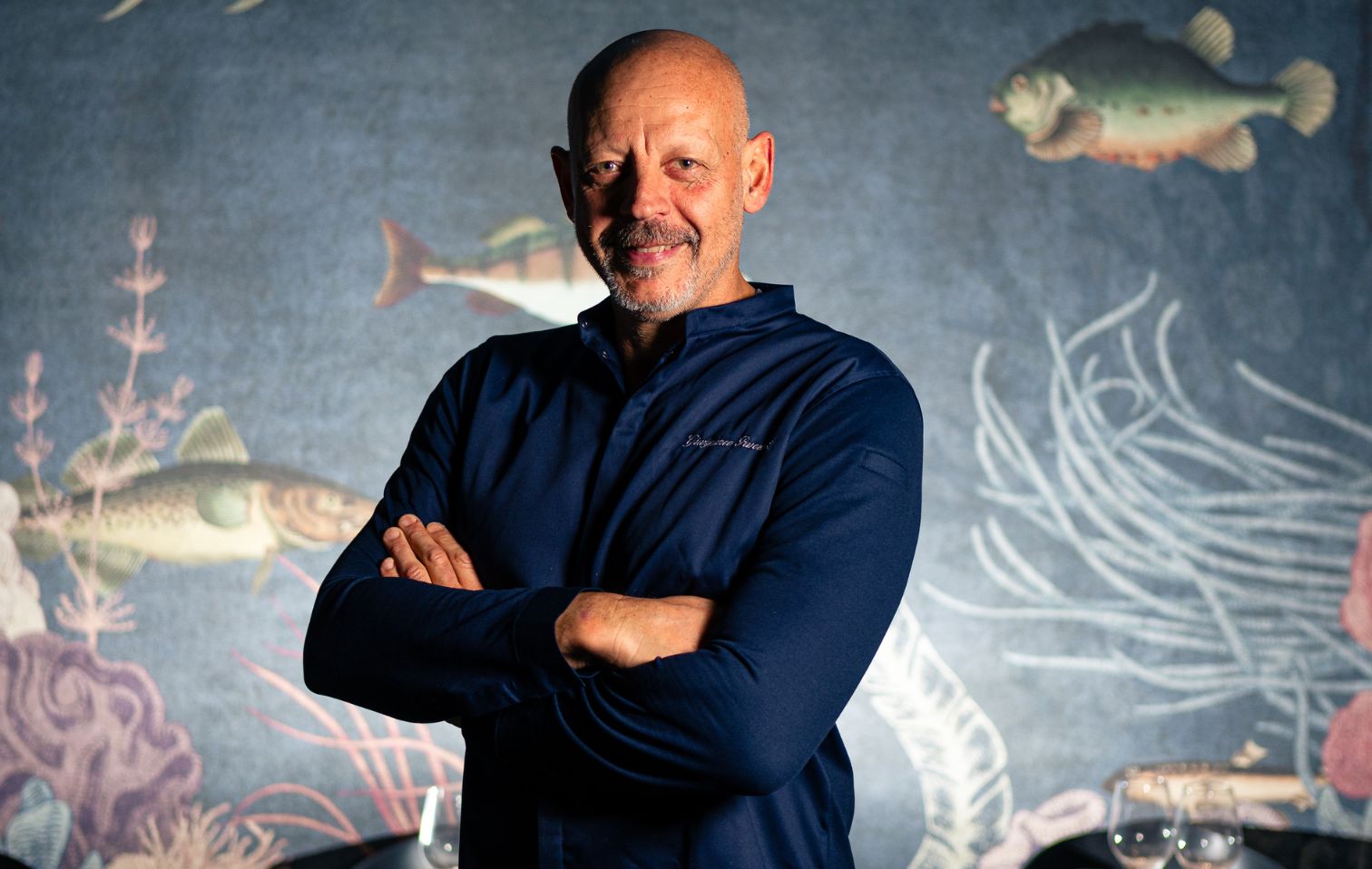
All this always with the ecosystem in mind and, above all, trying to understand how “seafood” gastronomy can evolve in a broad sense. The idea of not putting “seafood” cuisine at the center, or, at the very least, moving from “seafood” to “sea” cuisine, was really our key. Because the sea influences a little bit of everything, it shapes geography, so it is something more; it leads you to more research, from seaweed to local products. The last dish we presented talks a little bit about that.
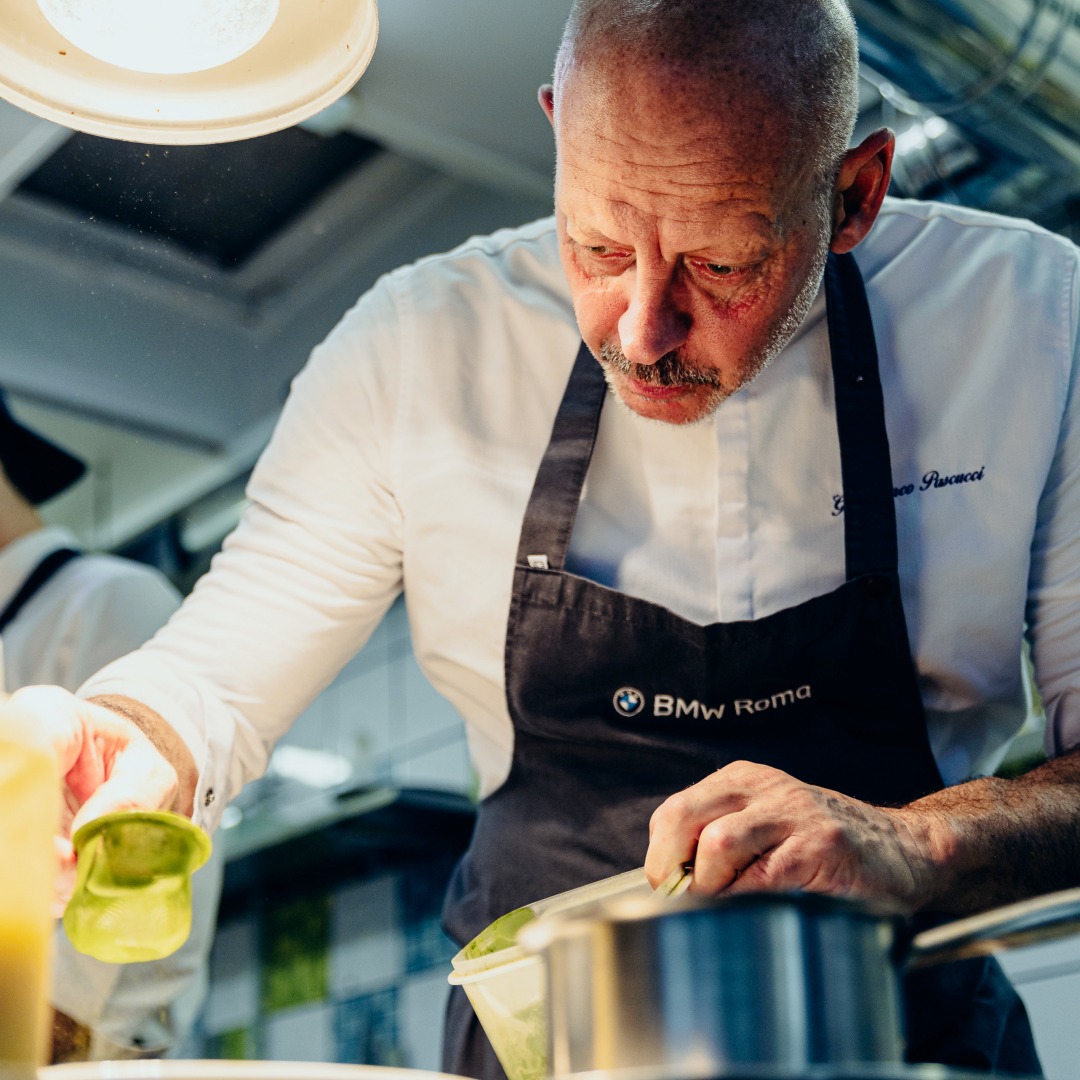
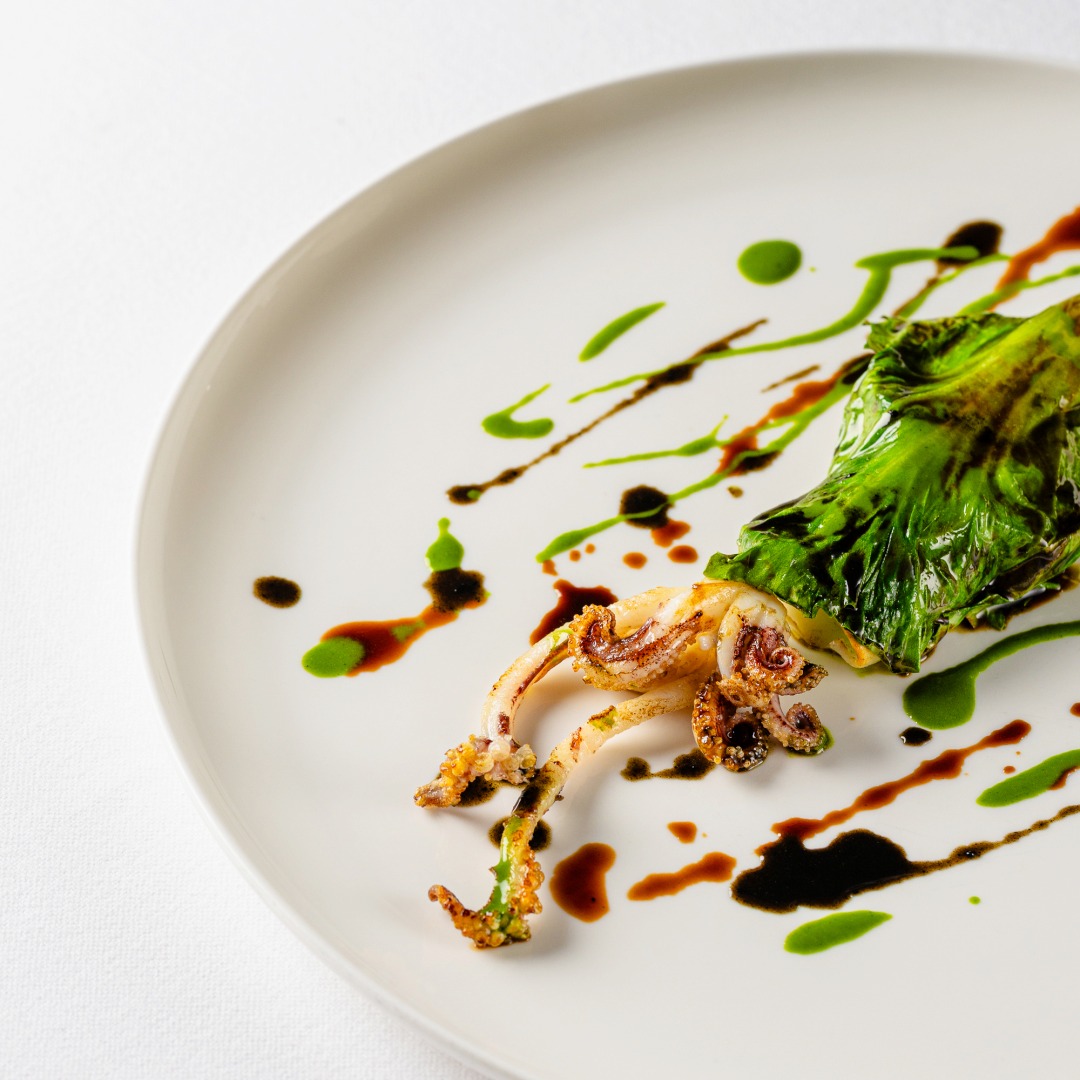
Can you tell us about it?
It is a paste that is cooked in water for 7 minutes and finished in an infusion of squid, while a butter, also made from squid , is prepared with the scraps ; the latter, flavored with spices and herbs, helps us to blend the paste. As we then showed in San Sebastian, there is a mottling made with pig collagen, pig ears, squid and raspberry vinegar. So basically, if you imagine starting from a spaghetti with squid, at the end there is no longer the shellfish as is, but its deep essence remains.
The pasta changes format, incorporates our research, goes even further than the ingredient. On the other hand, we are continuing to experiment through fermenting squid to make vinegar from it. This is to allow the fish itself to “disappear” and become something else on the palate, paving the way for new combinations.
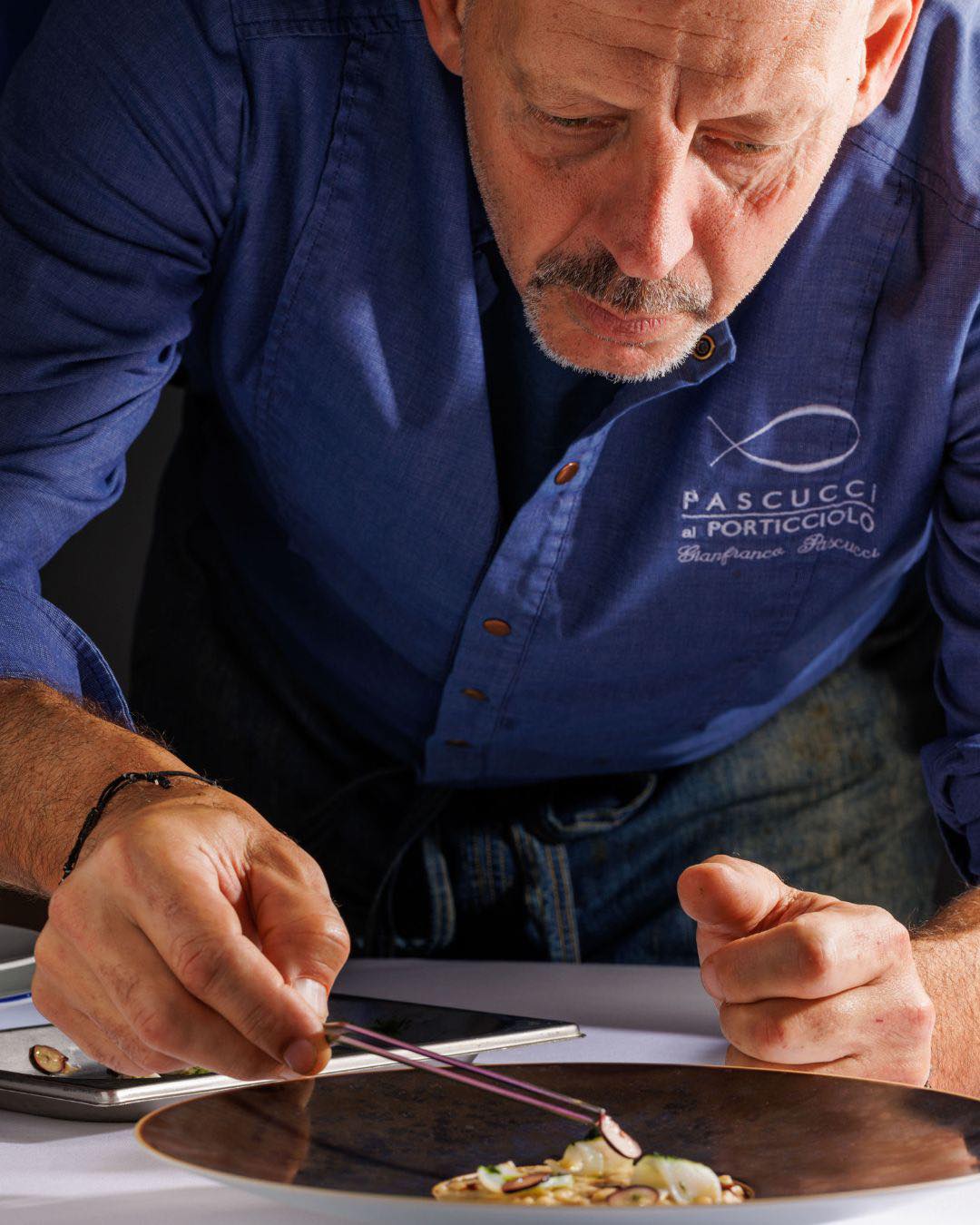
Going back to the squid noodle, from which we started, the potential for development is incredible and allows us to land on other things. Think, for example, of flavor combinations: it is better to combine a traditional balsamic vinegar with Parmigiano, than to combine it with grapes. We applied the same argument to squid, and that is extraordinary. We presented at Identità Golose precisely this squid vinegar infused with myrtle and paired with a white chocolate (in collaboration with pastry chef Fabrizio Fiorani, ed.), so that the outcome is a dessert. If you think that we had started from a spaghetti with squid and arrived at white chocolate, that really gives us a lot of stimulation.
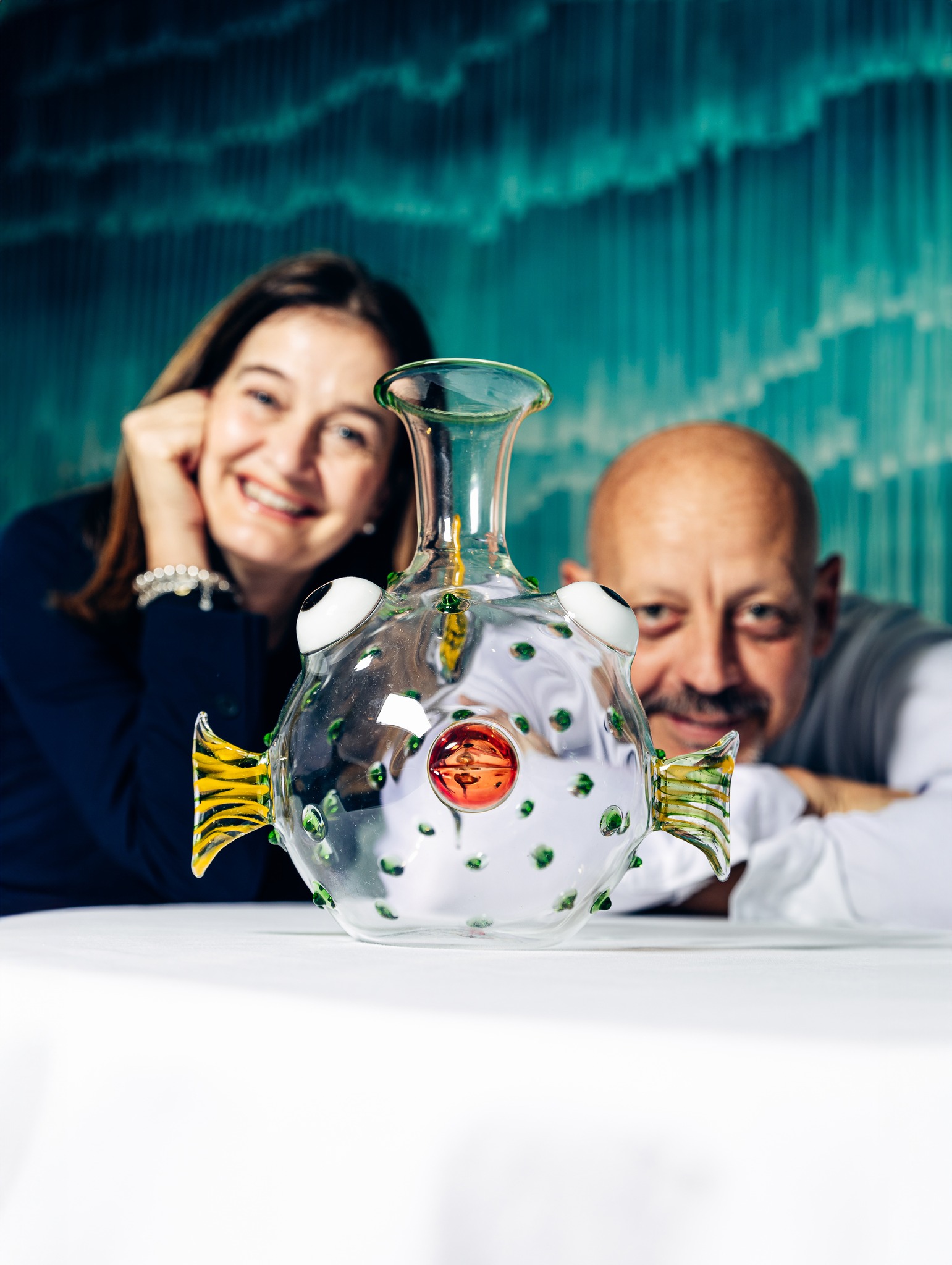
What is your approach and vision for the future?
You have to dive in, you have to be always proactive in this time of objective difficulty, from economic challenges to relationships. We need to value people who want to have value and who want to tell a story. There is a need to change our habits a bit, including our culinary habits. It is as if we all need the depths of the sea: after all, we are afraid of the abyss, that is, of people talking about seafood cuisine as if it were “just fish.” Instead, we need instead depth, to give the ingredient its value, to transform it, to make it clear that a grilled squid is great, but it can become a vinegar even-that's it. This is the thing that is engaging me the most right now.
